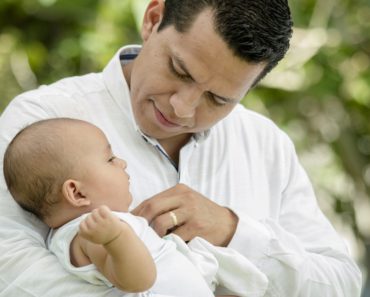Contents
- 1 Exploring the Possibilities: Grandparent Adoption in Texas for Stepparents
- 2 The Process of Grandparent Adoption in Texas
- 3 Benefits and Challenges of Grandparent Adoption
- 4 Legal Considerations for Stepparents Pursuing Grandparent Adoption
- 4.1 How does the process of grandparent adoption in Texas differ when it involves a stepparent?
- 4.2 What are the legal requirements that must be met for a grandparent adoption by a stepparent in Texas?
- 4.3 Are there any specific challenges or considerations that arise in the context of stepparent-grandparent adoption in Texas compared to traditional stepparent adoption?
- 4.4 Related Posts
Welcome to Stepparent Magazine! In this article, we will delve into the topic of grandparent adoption in Texas. Explore the legal and emotional aspects involved in this process, as well as the benefits and challenges it presents for both grandparents and their grandchildren. Stay tuned for valuable insights and guidance on this important matter.
Exploring the Possibilities: Grandparent Adoption in Texas for Stepparents
Exploring the Possibilities: Grandparent Adoption in Texas for Stepparents
When it comes to stepparents seeking legal recognition and rights, grandparent adoption can be an avenue worth exploring. In Texas, the law allows for the adoption of a child by their grandparents under certain circumstances.
Why consider grandparent adoption?
Grandparent adoption can be beneficial in situations where the biological parent is absent, unable, or unwilling to fulfill their parental responsibilities. Stepparents who have been raising their stepchild may seek to legally adopt them to solidify their parental role and ensure stability and security for the child.
Requirements for grandparent adoption in Texas
There are several requirements that must be met in order to pursue grandparent adoption in Texas. The grandparent(s) must demonstrate that they have had actual care, control, and possession of the child for at least six months preceding the adoption petition. Additionally, a court will also consider the child’s best interests in making a decision regarding the adoption.
The process of grandparent adoption
To begin the grandparent adoption process, a stepparent must file a petition for adoption with the court. This petition should include information about the child, the grandparent(s), and the reasons why the adoption is being sought. The court will then schedule a hearing to review the case and make a determination based on the evidence presented.
The importance of legal representation
Navigating the legal complexities of grandparent adoption can be challenging, which is why it is advised to seek the assistance of an experienced attorney specializing in family law. An attorney can guide stepparents through the process, ensure all necessary documentation is properly filed, and advocate for their rights and the best interests of the child.
Conclusion
For stepparents seeking legal recognition and rights, exploring grandparent adoption in Texas can be an option worth considering. By fulfilling the necessary requirements and seeking legal representation, stepparents can take steps towards securing a stable and secure future for both themselves and their stepchild.
The Process of Grandparent Adoption in Texas
Grandparent adoption in Texas follows a specific legal process that involves several steps. These steps include filing a petition, obtaining consent from the biological parents, completing a home study, attending court hearings, and finalizing the adoption. The process may vary depending on the specific circumstances of the case, so it is important to consult with an attorney experienced in grandparent adoption. An understanding of the legal requirements and procedures can help grandparents navigate through the adoption process effectively and efficiently.
Benefits and Challenges of Grandparent Adoption
There are various benefits and challenges to consider when it comes to grandparent adoption. One of the main benefits is providing stability and a secure environment for the child, ensuring their well-being and overall development. Grandparents already have an established relationship with the child, which can make the transition into a formal legal relationship smoother. However, challenges may arise in terms of emotional and financial responsibilities, as well as potential conflicts with the biological parents. Seeking professional guidance and support can help grandparents navigate these challenges successfully.
Legal Considerations for Stepparents Pursuing Grandparent Adoption
For stepparents considering grandparent adoption, there are important legal considerations to keep in mind. It is crucial to understand the parental rights of both biological parents and the legal requirements for termination of these rights. In Texas, parental rights can be terminated if it is proven that the parent has engaged in specific acts of abandonment, abuse, or neglect. Stepparents should also consider the impact of adoption on inheritance rights, medical decisions, and other legal aspects. Consulting with an attorney who specializes in both stepparent and grandparent adoption is essential to navigate this complex legal landscape.
How does the process of grandparent adoption in Texas differ when it involves a stepparent?
In Texas, the process of grandparent adoption involving a stepparent is slightly different than a regular grandparent adoption. When a stepparent wishes to adopt their stepchild with the consent of the biological parent (who is their spouse), they must follow a specific procedure.
Firstly, the stepparent must file a petition for adoption with the court. This petition should include all relevant information about the child, the stepparent, and the biological parent. It is important to mention the relationship between the child and the stepparent, as well as the consent of the biological parent.
Once the petition is filed, the court will review the case and consider the best interests of the child. Texas law emphasizes the importance of maintaining continuity in the child’s life and promoting stability and permanence.
The court may require a home study evaluation to assess the suitability of the stepparent and their home environment for the child. This evaluation typically includes interviews, background checks, and home visits by a social worker.
If the court determines that the adoption is in the best interest of the child, a final adoption hearing will take place. During this hearing, the judge will review all the evidence and make a decision regarding the adoption. If approved, the stepparent will become the legal parent of the child, with the same rights and responsibilities as a biological parent.
It is essential to consult with an experienced family law attorney who specializes in stepparent adoptions to navigate the legal process successfully. The attorney can guide the grandparent and stepparent through each step, ensuring all necessary documents are properly prepared and submitted to the court.
Overall, while there are some additional considerations when a stepparent is involved, the process of grandparent adoption in Texas aims to prioritize the best interests of the child and provide them with a stable and loving home environment.
What are the legal requirements that must be met for a grandparent adoption by a stepparent in Texas?
Grandparent adoption by a stepparent in Texas requires meeting certain legal requirements. Here are the key factors to consider:
1. Consent of the biological parents: Both biological parents must provide written consent for the adoption to proceed, unless their parental rights have been terminated or they are deceased.
2. Home study: All adoptive homes must undergo a home study evaluation conducted by a licensed social worker. The purpose is to assess the suitability and safety of the home environment for the child.
3. Termination of parental rights: If one biological parent is still alive and refuses to consent to the adoption, their parental rights must be terminated for the stepparent adoption to proceed. This typically requires proving that the parent is unfit or has abandoned the child.
4. Best interest of the child: The court will consider the child’s best interests when deciding whether to grant the adoption. Factors such as the strength of the parent-child relationship, the child’s age and preferences, and the ability of the stepparent to provide a stable and loving environment will be assessed.
5. Legal representation: All parties involved, including the stepparent seeking adoption, the biological parents, and the child, should have independent legal representation throughout the process.
It is essential to consult an experienced family law attorney in Texas to navigate the specific requirements and procedures for grandparent adoption by a stepparent.
Are there any specific challenges or considerations that arise in the context of stepparent-grandparent adoption in Texas compared to traditional stepparent adoption?
There are several challenges and considerations that arise in the context of stepparent-grandparent adoption in Texas compared to traditional stepparent adoption.
1. Consent requirements: In a traditional stepparent adoption, the noncustodial parent’s consent is usually required. However, in stepparent-grandparent adoption, the consent of both parents and the grandparents may be necessary depending on the circumstances.
2. Relationship dynamics: Stepparent-grandparent adoption involves more complex relationships as it not only affects the relationship between the stepparent and stepchild but also the relationship between the grandparent and grandchild. This can sometimes lead to emotional challenges and potential conflicts.
3. Legal considerations: Texas law has specific requirements for adoption, including background checks, home studies, and legal documentation. These requirements must be met in both traditional stepparent and stepparent-grandparent adoptions.
4. Termination of parental rights: If the biological parent is deceased or unwilling to relinquish their parental rights, additional legal steps may be necessary to terminate those rights before the adoption can take place. This process can be more complicated in stepparent-grandparent adoptions.
5. Cultural and family dynamics: Stepparent-grandparent adoption may involve unique cultural and family dynamics that require careful consideration and sensitivity. It is crucial to understand and respect the diverse backgrounds and perspectives involved.
6. Financial implications: Stepparent-grandparent adoption can have financial implications, especially if the grandparent assumes financial responsibility for the child. Understanding the financial responsibilities and potential support available is essential.
Overall, while there may be some additional challenges and considerations in stepparent-grandparent adoption compared to traditional stepparent adoption, seeking legal advice and support from professionals experienced in such cases can help navigate the process effectively.







